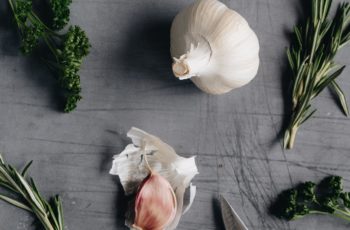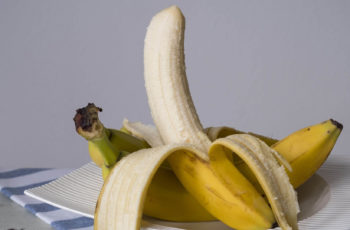High Blood Pressure refers to a condition when the blood flows at a higher-than-normal pressure through the arteries.
High Blood Pressure or Hypertension has become a common health concern among adults, affecting more than 1 billion people around the world. Nearly 1 in every 3 adults in India and the US suffer from high blood pressure these days.
Blood pressure rises and falls many times during the day. But when it stays too high for too long, it can lead to complications. High blood pressure increases the risk of serious health problems, such as heart disease, stroke, and even heart failure, if left uncontrolled.
This article lists 7 natural ways to lower blood pressure. Have a look.
#1: Exercise Regularly
Exercise can help manage weight, reduce stress and maintain heart heath. It also prevents elevated blood pressure from turning into hypertension. Regular physical activity lowers blood pressure through enhancing the heart’s ability to pump more blood. Aerobic exercises such as brisk walking, jogging, swimming, cycling, or dancing gradually and consistently strengthen the heart and expands the arteries to improve blood flow to different organs of the body.
According to experts, you should aim for at-least 75 minutes of strenuous activity or 150 minutes of moderate activity in a week. Breaking up this workout into several manageable sessions is the ideal way to combat high blood pressure.
Lifestyle habits put a direct impact on the pressure of the blood. They help manage high blood pressure naturally. This article lists 7 natural ways to lower blood pressure. Have a look.
Did You Know?
Often referred to as ‘silent-killer, high blood pressure can persist for years without showing any signs or symptoms.
#2: Maintain a proper Weight
Blood pressure significantly correlates with a person’s body weight. As the weight increases, blood pressure increases. Losing weight is an effective way of controlling blood pressure. Even a slight loss in weight can significantly drop your blood pressure levels.
Being overweight interferes with your breathing while you sleep, which further increases your blood pressure. It also puts extra pressure on your heart that may damage the blood vessels leading to life-threatening health conditions.
#3: Reduce Salt Consumption
Reducing salt intake is a convenient and cost-effective solution of controlling high blood pressure. Most of the people consume almost twice the recommended amount of salt in a day, which is the main source of sodium in our diet. High sodium consumption contributes to high blood pressure.
According to the World Health Organization, salt consumption of less than 5 grams (just about a teaspoon) per day can significantly improve blood pressure in adults and reduce the risk of cardiovascular diseases, coronary heart attack, and stroke.
#4: Increase Potassium Intake
Potassium is an essential nutrient that maintains fluid and blood volume and helps the body function normally. It eases the tension in the walls of blood vessels and improves overall heart health. Potassium also lessens the effect of sodium by helping the kidneys excrete out excess sodium. A healthy adult should aim for a potassium intake of around 4700-5000 mg on daily basis.
Bananas are one of the best sources of potassium, though it is also present in good quantities in other fruits and vegetables, such as Grapefruit, Kiwi, Carrots, and Spinach.
Did You Know?
According to studies, uncontrolled high blood pressure increases the risk of dementia (loss of memory) during later stages of life.
#5: Eat more Probiotics
According to a few studies, regular intake of probiotic food may improve elevated blood pressure levels. Foods such as yogurt, fermented and sour milk, and probiotic supplements have shown to lower systolic blood pressure and diastolic blood pressure if consumed regularly for a period of more than 8 weeks.
Studies also suggest that probiotics with multiple bacteria strains are more effective than probiotics with a single type of bacteria in managing high blood pressure.
Also Read: 7 Amazing Health Benefits of Eating Yogurt.
#6: Eat healthy High-Protein food
‘Getting protein from a variety of sources (four or more) can help lower the risk of high blood pressure’, says researchers. Along with traditional sources of protein (chicken, fish, etc.), plant sources are equally important in building up a positive heart health.
Plant-based protein is rich in fiber, which plays a major role in maintaining the gut health. A healthy gut helps prevent chronic inflammatory diseases such as diabetes and hypertension (associated with inflammation of the blood vessels). Plant sources also contain flavonoids, polyphenols, and other essential phytonutrients required by the body.
#7: Learn to Manage Stress
Stress can cause brief spikes in the blood pressure levels. When you’re under stress, the body releases a surge of hormones that causes the blood vessels to narrow and heart to beat faster than usual. Indulge in activities that help manage stress. Do yoga or meditation. Take proper sleep. Drink plenty of water. Try to socialize and speak with family or friends. All such activities can help you relax and manage your blood pressure at the same time.
Final Words
Managing blood pressure in natural ways makes a positive impact on your lifestyle. However, such practices takes a few months to show results. If you have severe high BP, seeking immediate medical attention is important.


